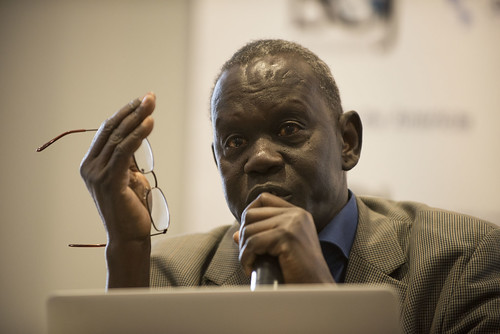April 5, 2014 | International
Site seeks to bind together warring factions in South Sudan
While crafting a site that works as a digital encyclopedia on the ethnic groups in his native Sudan, veteran journalist Jacob Akol realized this information could be combined with news and a social element to bind together the warring factions in the south.

Akol named his website Gurtong and, starting in 2002, began organizing social events for Sudanese people living abroad in the United Kingdom, Germany and Australia — countries that have a substantial Sudanese diaspora. The gatherings became a place where Sudanese immigrants could share native dances and songs.
The word gurtong means literally “blunted spear” and is a symbol for peace. It comes from a custom that solves blood feuds through a ritual where the families grind spear tips against rocks so no more blood will be shed. Akol realized his website could help breed cooperation by collecting information on the different cultures and sharing it online.
“If you blunt a spear, what do you get?” Akol said. “It’s a spear that doesn’t kill. It’s a spear that doesn’t cut. So…gurtong means peace.”
Gurtong wanted to facilitate understanding between groups “so that people can exchange ideas—so people can dance, sing and drink together.”
Jacob Akol carried that theme throughout his career in journalism. He left Sudan as a young refugee during intermediate school to the Democratic Republic of Congo, then Tanzania, Zambia and Ireland, finally attending college at the University of Leeds Trinity.
The website and monthly print publication covers conflicts as South Sudan, the youngest country on Earth, struggles with severe economic hardships as a result of its split with the north.
“The objective was to organize social gatherings for the people of South Sudan, the people of different ethnic communities because there was division back home,” Akol said.

